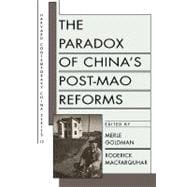
Note: Supplemental materials are not guaranteed with Rental or Used book purchases.
Purchase Benefits
What is included with this book?
| Preface | |
| Introduction | |
| Dynamic Economy, Declining Party-State Merle Goldman | |
| China's Transition in Economic Perspective | |
| Limited Political Reforms | |
| Elite Politics | |
| Party-Military Relations | |
| The National People's Congress | |
| The Struggle over Village Elections Lianjiang | |
| Mass Political Behavior in | |
| Fragmenting Society | |
| The Changing Role of Workers | |
| Farmer Discontent and Regime Responses | |
| China's Floating Population | |
| The New Middle Class | |
| The Rise of Private Business Interests | |
| The Emergence of Politically Independent Intellectuals | |
| Crime, Corruption, and Contention | |
| The "State of the State" Richard Baum | |
| Notes | |
| Contributors | |
| Table of Contents provided by Publisher. All Rights Reserved. |
The New copy of this book will include any supplemental materials advertised. Please check the title of the book to determine if it should include any access cards, study guides, lab manuals, CDs, etc.
The Used, Rental and eBook copies of this book are not guaranteed to include any supplemental materials. Typically, only the book itself is included. This is true even if the title states it includes any access cards, study guides, lab manuals, CDs, etc.